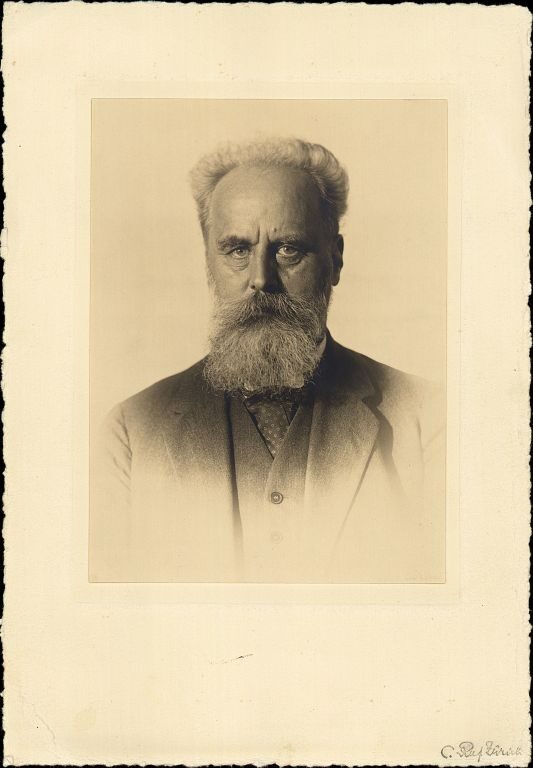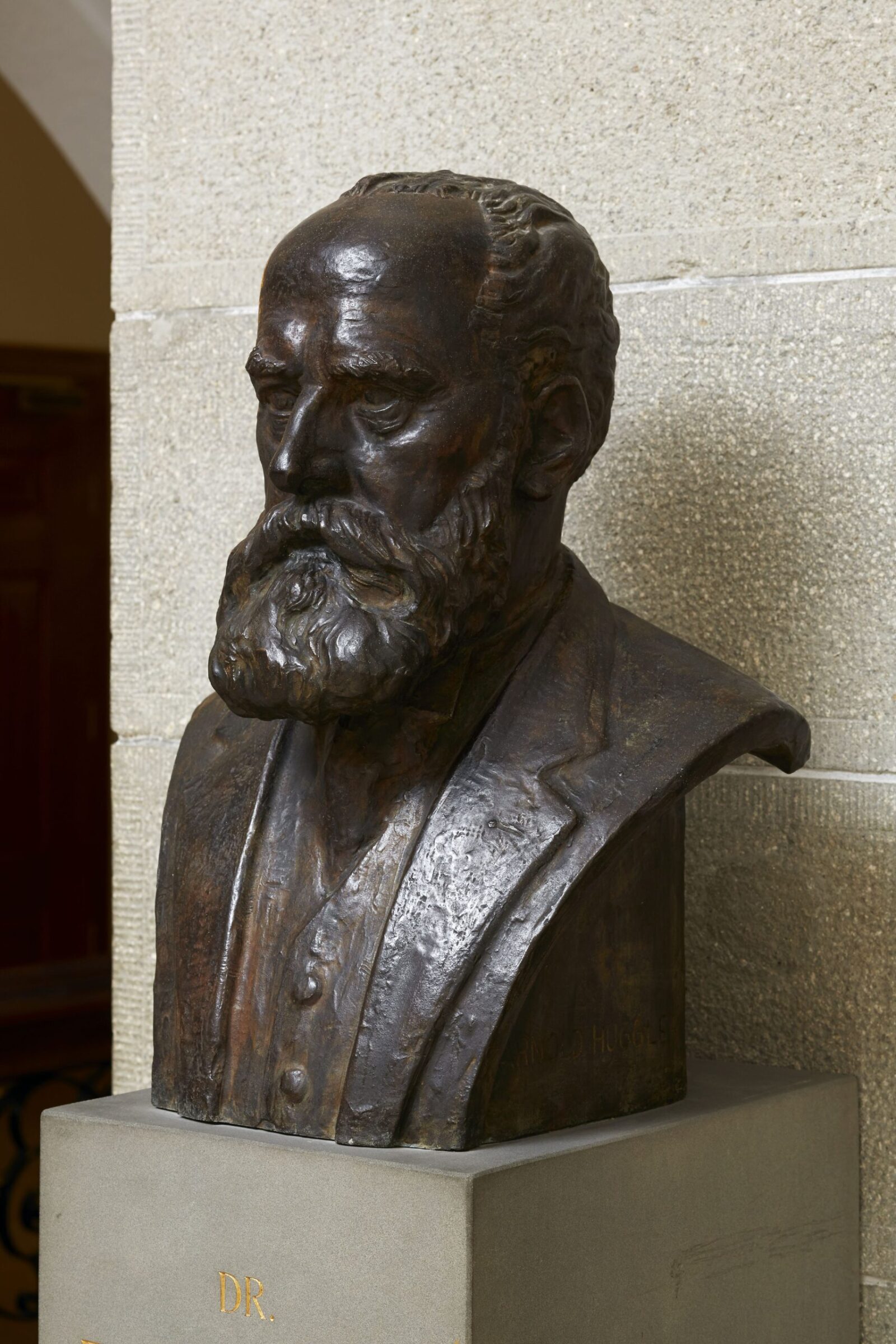Between tradition and modernity
With the onset of agricultural protection through tariffs and subsidies, Ernst Laur, co-founder of the Swiss Farmers’ Union (SFU), came to the Polytechnic. Laur’s triple function (association director, Farmers’ Secretary and professor) made him one of the most influential figures in Swiss public life in the first decades of the twentieth century.

Born in Basel, he taught at ETH until 1939. At the same time, he was politically active. He demanded price protection and import regulations for the peasantry from the state – with lasting political success. His many publication and lecture activities made him known nationwide, which helped him get elected as head of the newly created Swiss Farmers’ Secretariat in 1898 and, at the same time, be appointed as managing director of the Swiss Farmers’ Union, which had been founded a year earlier, and of which he later became director. From 1901, he taught at the Swiss Federal Polytechnic as a private lecturer in Agricultural Policy, and from 1908 to 1937 as a Full Professor of Agriculture, specialising in Farm Management.
Laur and the agricultural business studies
While Laur eloquently propagated a socially romantic ideology of peasantry in public, he was convinced that agriculture could only maintain its place in industrial society through controlled structural change. Farms should be modernised according to economic criteria. In 1907, Laur published his main work on this subject, “Landwirtschaftliche Betriebslehre für bäuerliche Verhältnisse” (Agricultural business studies for rural conditions), which in the following decades was reprinted numerous times and translated into other languages and received international attention. Laur spread his self-invented, simplified accounting system with double-entry bookkeeping, in which the farmer’s business and the farmer’s household were separated. Laur’s textbooks were translated into numerous languages and had several editions. In the states of Eastern and Central Europe that emerged after the First World War, Laur was regarded as a role model and guarantor of the down-to-earth peasantry vis-à-vis the large landowners.
A Customs Act for the “preservation of a healthy peasantry”
In addition to modernising farms, the state should protect the agricultural sector against foreign competition through protectionist measures. The demand for the “preservation of a healthy peasantry” was finally enshrined in the 1951 Agriculture Act and soon implemented with price guarantees, import restrictions, import bans, takeover obligations, customs duties, export subsidies, consumption subsidies, cultivation contributions, and so on – an agricultural policy legacy by Laur that continues to have an impact today.
As Farmers’ Secretary, Laur wanted to give farmers a greater say in economic policy. He brought his influence to bear on the drafting of the Customs Act and managed to get all the SFU delegates to unanimously approve the new Customs Act on 22 February 1902.

The Swiss Farmers’ Secretariat as a political pioneer
Through his triple function (association director, Farmers’ Secretary and professor), Laur enjoyed an unparalleled influence on Swiss public life. The Farmers’ Secretariat, which was subsidised by the federal government, was expanded into a scientific office under his leadership. Its statistical surveys supported the representation of the interests of the SFU and provided material for Switzerland’s official agricultural policy as well as the basis for Laur’s business economics. As a professor at ETH, he trained the future agricultural elite, who subsequently worked in the Farmers’ Secretariat or in the National Council as representatives of the agricultural lobby.
Agriculture in the Constitution
Laur also campaigned for agriculture to be enshrined in the Federal Constitution. On 6 July 1947, the men entitled to vote finally adopted the economic article 31bis in the Federal Constitution, which for the first time enshrined a healthy peasantry and efficient agriculture as well as the consolidation of peasant land ownership in the Constitution.
In 1939, a traffic accident forced Laur to resign from the SFU Board of Directors and from his professorship. However, he remained actively engaged in agriculture. From 1904 to 1945, he helped shape Swiss customs policy as the Federal Council’s delegate for trade agreements, together with representatives of the industry. From 1948 to 1950, he presided over the European Confederation of Agriculture (Confédération européenne de l’agriculture). On 30 May 1964, Ernst Laur died at his home in Effingen in the canton of Aargau at the age of 93.